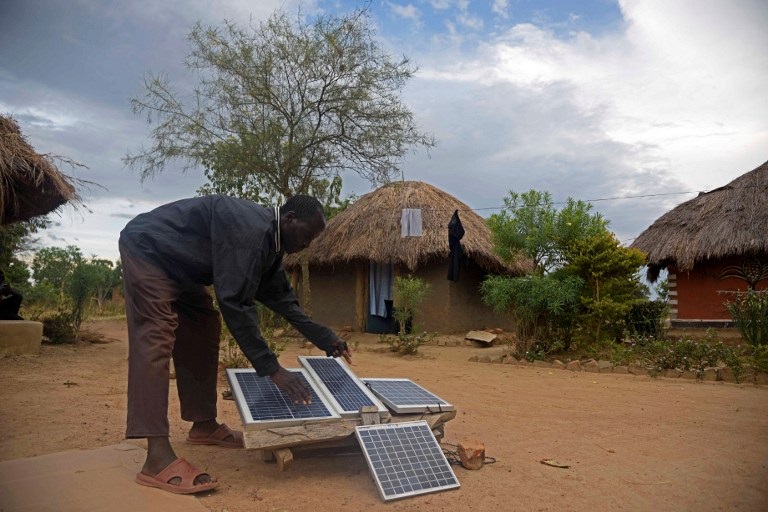
Washington, United States | AFP |
Sub-Saharan Africa, where more than a half billion people live without electricity, trails the world in government policies that promote sustainable energy, according to a new World Bank report Wednesday.
Much of the rest of the world, however, has made strides toward making energy broadly available, developing renewable power sources and increasing efficiency, the inaugural Regulatory Indicators for Sustainable Energy report said.
In a survey of 111 countries, the World Bank found that through 2015 nearly 80 percent had begun to adopt policies to expand electrical grids, connecting them to solar and wind generation, and to help make electric utilities creditworthy and financially viable while keeping energy prices down.
More than a third of countries, home to 96 percent of the global population, were at an advanced stage and progress was not limited to rich countries.
Kenya, Tanzania and Uganda outperformed their peers in access to energy, while Pakistan made progress on renewable energy, and Vietnam had developed policies on energy efficiency.
Yet the report showed “on the whole that African countries are scoring very poorly on the policy environment for energy access,” said Vivien Foster, the World Bank’s global lead for energy economics.
“As many as 40 percent of them are in the red zone, meaning they’ve barely begun to take policy measures to accelerate access to energy.”
There were bright spots on the African continent, such as South Africa, Tunisia and Morocco, she noted.
UN member states in 2015 adopted a set of sustainable development goals to reach by 2030, including a guarantee of cheap, reliable, sustainable and modern energy for all people.
The report, which will be updated every two years, said local authorities should use its findings to compare their policies to regional and global peers in efforts to meet the development goals.
Riccardo Puliti, head of the bank’s energy and extractives global practice, told reporters the global lender currently had a $1.6 billion portfolio to support energy access that was mainly focused in Asia and Latin America.
“But we are moving very strongly in Africa as well,” he said.
For the current fiscal year the bank had $260 million in new projects for off-grid power generation, in countries including Kenya, Rwanda, Niger and Zambia, he said.
 The Independent Uganda: You get the Truth we Pay the Price
The Independent Uganda: You get the Truth we Pay the Price


